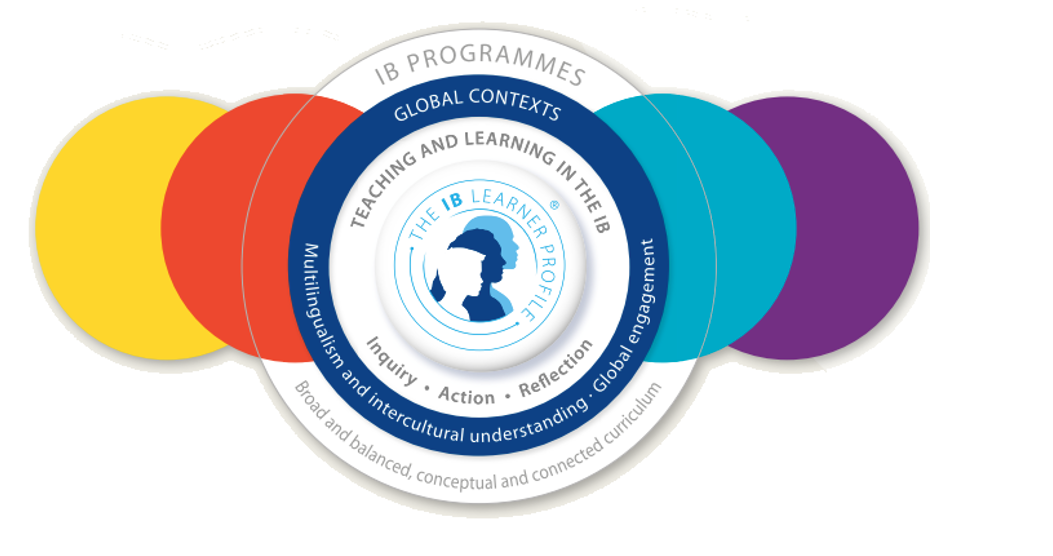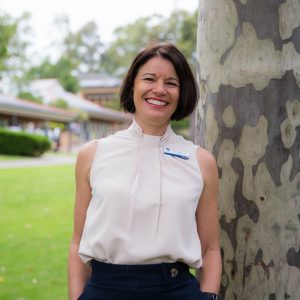Published on August 5, 2022
Most of us are aware of the VUCA concept; the notion that we live in volatile, uncertain, complex and ambiguous times. The graphic below is one I have always found comforting when speaking about VUCA as it helps identify a roadmap for how we navigate complex times:
- we need to have a clear vision (or sense of purpose);
- we need to work hard to build a shared understanding of this vision and aim for clarity in the communication of that vision; and
- we need to be agile in response to emerging priorities while staying true to that vision.

The HVGS strategic plan that we are developing will provide that vision and clarity, while allowing for agility. The process we are embarking on for developing the strategic plan will help us build a shared understanding and a sense of collective responsibility for moving HVGS forward into the next stage of its journey.
Likewise, an IB education, provides us with a framework for helping our students navigate a VUCA world. The International Baccalaureate Organisation has four programmes:
1. The Primary Years Programme, which we offer in our Junior School
2. The Middle Years Programme, which we have in place for years 7 – 10
3. The IB Career Related Programme, which we offer in years 11 and 12
4. The IB Diploma Programme, which we currently do not offer and is a pre-tertiary pathway for students in Years 11 and 12.
Underpinning these programmes is a philosophy about learning and what it means to be a human being in a contemporary world that is incredibly powerful.

At the heart of all IB programmes is the learner. They are student-centred learning frameworks which compel schools to ensure learning is relevant to the current and future lives of students. All IB programmes require schools to teach students the competencies to be effective learners: the ability to be self-managers who can plan and prioritise; critical thinkers who question their own assumptions and that of others in the pursuit of truth; the ability to ask the right questions and engage in cognitive conflict to get to the best solution for a problem; the ability to collaborate; the skills to be inquisitive and curious and evidence-based in decision-making; and the competencies needed to be ethical and compassionate human beings.
Therefore, being an IB World School means being more than a school that strives for academic results. It means living our values and mission and helping young people develop the tools to solve complex problems. Our goal at HVGS – and the IB programmes helps us achieve this goal – is to help young people feel a sense of efficacy to be change makers and help create a world that is sustainable for future generations and welcoming of diverse perspectives and voices.
To illustrate how an IB education helps young people find strategies to engage with complex problems, I want to reference the 2021 State of the Environment Report. Here is a quotation from the report:
“Ongoing environmental decline also has negative economic impacts on industries, businesses, regions and individuals. …. Humans have a profound influence on the environment, and we must embrace our role as custodians of the lands and seas.”
To improve the outlook for our environment, communities and economy, we will need to strengthen and build connections: connecting people with Country; connecting economics with the environment; and connecting biodiversity, lands, rivers, seas, skies and soils.
We need to learn from both western scientific and Indigenous knowledge systems, and to connect with each other. Individual, community, industry and government action are all needed… Working together, we can deepen our connections and build resilient Country and people.” – State of the Environment Report, 2021
To tackle this thorny issue of environmental sustainability in Australia, we need young people who:
- Understand and want to take on the responsibility for being the custodians of our environment. The IB programmes all emphasis service learning and sustainability. They ask students to give back to their world and their communities because being a good citizen requires this. Citizenship is one of our values and the IB programmes support us in thinking about citizenship in relation to our local and global communities.
- Feel a sense of efficacy and agency. The IB programmes all require students to look move from reflection to action.
- Systems thinkers. At the heart of all four IB programmes is an emphasis on interdisciplinary thinking because we cannot solve complex problems in isolation or by looking at the problem through a narrow lens. In the example from the State of Environment Report above, it recommends that we engage with western scientific as well as indigenous knowledge systems. In the IB Diploma all students are required to study Theory of Knowledge and to look at the way in which different knowledge systems operate together to solve complex issues. Students in the PYP do an exhibition, in MYP a personal project, in the IBCP a reflective project and in the IB Diploma an extended essay all of which require students to think outside of the box and connect disparate ideas.
- Inclusive of diverse perspectives. The emphasis on language learning in the IB programmes helps build student capacity to engage across cultures.
- Innovative and agile. Also at the heart of the IB programmes is a belief that all young people have the capacity to be agile and innovative provided we explicitly teach them how to do this.
- Hopeful. A specific focus on capacity building beyond traditional subjects means we help young people feel like they have agency and can access the tools (within themselves and beyond) to find solutions to complex problems.
Engaging in an IB education enables us to put our values and mission into action, and helps our students navigate a VUCA world. It gives us the framework to go beyond educating for “good grades” and put into practice our belief in the importance of a holistic education and nurturing every single student to reach their potential.

